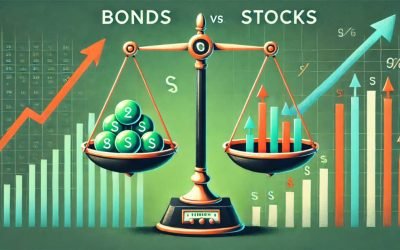Understanding Stock Market Indexes: A Comprehensive Guide
The world of finance is vast and complex, with numerous tools and metrics designed to help investors make informed decisions. Among these, stock market indexes stand out as essential instruments for gauging market performance. This article delves into the basics of stock market indexes, explaining their significance, types, and how they function. Whether you’re a novice investor or a seasoned trader, understanding stock market indexes is crucial for navigating the financial markets effectively.
What is a Stock Market Index?
A stock market index is a statistical measure that reflects the composite value of a selected group of stocks. These indexes are designed to represent the performance of a specific segment of the market, such as large-cap stocks, technology stocks, or the entire market. By tracking the movements of these indexes, investors can gain insights into market trends and make more informed investment decisions.
Types of Stock Market Indexes
Stock market indexes can be classified into several categories based on their composition and the criteria used for selecting constituent stocks. Here are some of the most common types:
- Broad Market Indexes: These indexes represent the overall market performance. Examples include the S&P 500 and the FTSE All-Share Index.
- Sector Indexes: These indexes focus on specific sectors of the economy, such as technology, healthcare, or finance. Examples include the NASDAQ-100 and the FTSE 350 Financials Index.
- International Indexes: These indexes track the performance of stocks from multiple countries. Examples include the MSCI World Index and the FTSE Global All Cap Index.
- Market Capitalisation Indexes: These indexes are based on the market capitalisation of constituent stocks. Examples include the Russell 2000 and the FTSE 100.
How Stock Market Indexes are Calculated
The calculation of stock market indexes can vary depending on the methodology used. The two most common methods are:
- Price-Weighted Indexes: In this method, the index value is calculated based on the prices of the constituent stocks. Higher-priced stocks have a greater impact on the index value. An example of a price-weighted index is the Dow Jones Industrial Average (DJIA).
- Market Capitalisation-Weighted Indexes: In this method, the index value is calculated based on the market capitalisation of the constituent stocks. Larger companies have a greater impact on the index value. Examples include the S&P 500 and the FTSE 100.
Major Stock Market Indexes Around the World
Several stock market indexes are widely recognised and followed by investors globally. Here are some of the most prominent ones:
| Index | Region | Description |
|---|---|---|
| S&P 500 | United States | Tracks the performance of 500 large-cap companies listed on US stock exchanges. |
| FTSE 100 | United Kingdom | Represents the 100 largest companies listed on the London Stock Exchange. |
| Nikkei 225 | Japan | Tracks the performance of 225 large-cap companies listed on the Tokyo Stock Exchange. |
| MSCI World Index | Global | Represents large and mid-cap stocks across 23 developed markets. |
| Hang Seng Index | Hong Kong | Tracks the performance of the largest companies listed on the Hong Kong Stock Exchange. |
The Role of Stock Market Indexes in Investment Strategies
Stock market indexes play a crucial role in various investment strategies. Here are some ways they are utilised:
- Benchmarking: Investors use indexes as benchmarks to evaluate the performance of their portfolios. By comparing their returns to a relevant index, they can assess whether they are outperforming or underperforming the market.
- Index Funds: These are mutual funds or exchange-traded funds (ETFs) that aim to replicate the performance of a specific index. They offer a low-cost way for investors to gain exposure to a broad market segment.
- Market Analysis: Analysts and economists use indexes to gauge the overall health of the economy and identify trends. For example, a rising index may indicate economic growth, while a declining index may signal a recession.
Advantages and Disadvantages of Stock Market Indexes
Like any financial tool, stock market indexes have their pros and cons. Here are some of the key advantages and disadvantages:
- Advantages:
- Simplicity: Indexes provide a straightforward way to track market performance without the need to analyse individual stocks.
- Diversification: Investing in index funds offers broad market exposure, reducing the risk associated with individual stocks.
- Cost-Effective: Index funds typically have lower fees compared to actively managed funds.
- Disadvantages:
- Limited Flexibility: Index funds are designed to replicate the performance of an index, which means they cannot adapt to changing market conditions.
- Market Risk: Indexes are subject to market fluctuations, and investors can still experience losses during downturns.
- Over-Concentration: Some indexes may be heavily weighted towards certain sectors or companies, leading to over-concentration risk.
How to Invest in Stock Market Indexes
Investing in stock market indexes can be done through various financial instruments. Here are some common ways to invest:
- Index Funds: These are mutual funds that aim to replicate the performance of a specific index. They are managed passively and offer a low-cost way to gain exposure to a broad market segment.
- Exchange-Traded Funds (ETFs): ETFs are similar to index funds but trade on stock exchanges like individual stocks. They offer flexibility and liquidity, making them a popular choice for investors.
- Futures and Options: These are derivative instruments that allow investors to speculate on the future performance of an index. They are more complex and suitable for experienced traders.
Conclusion
Stock market indexes are indispensable tools for investors, providing valuable insights into market performance and trends. By understanding the different types of indexes, how they are calculated, and their role in investment strategies, investors can make more informed decisions and achieve their financial goals. While indexes offer numerous advantages, it’s essential to be aware of their limitations and risks. Whether you’re investing in index funds, ETFs, or derivatives, a thorough understanding of stock market indexes is crucial for successful investing.

Q&A Section
- Q1: What is a stock market index?
A stock market index is a statistical measure that reflects the composite value of a selected group of stocks, representing the performance of a specific market segment.
- Q2: How are stock market indexes calculated?
Stock market indexes can be calculated using different methods, such as price-weighted and market capitalisation-weighted methodologies.
- Q3: What are some major stock market indexes?
Some major stock market indexes include the S&P 500, FTSE 100, Nikkei 225, MSCI World Index, and Hang Seng Index.
- Q4: What are the advantages of investing in stock market indexes?
Advantages include simplicity, diversification, and cost-effectiveness.
- Q5: How can I invest in stock market indexes?
You can invest in stock market indexes through index funds, exchange-traded funds (ETFs), and derivative instruments like futures and options.
Here are a few excellent articles that explain stock market indexes in detail:
- Investopedia – “Top 3 U.S. Stock Market Indexes”
This article provides an overview of the three most commonly tracked U.S. stock indexes: the S&P 500, Dow Jones Industrial Average (DJIA), and Nasdaq Composite. It explains how each index is constructed and its relevance to different sectors of the economy, with specific details on market-cap-weighting and price-weighting methodologies. This is a great primer for beginners to understand the role of indexes in the U.S. equity market(Investopedia). - Investopedia – “Market Index: Definition, How Indexing Works, Types, and Examples”
This piece dives deeper into the concept of market indexes, explaining different weighting mechanisms (market-cap, price, and float-weighted indexes). It also highlights how indexes serve as benchmarks for portfolio performance and are the foundation for passive investment strategies(Investopedia). - Kiplinger – “Understand the Major Stock Market Indexes”
This article offers a detailed look at the history and unique features of the Dow Jones, Nasdaq, and S&P 500 indexes. It provides comparisons of the indexes in terms of sector focus and performance, and is especially helpful for those interested in index-based investing strategies(Kiplinger.com). - Nasdaq – “A Simple Introduction to U.S. Stock Market Indexes”
This guide introduces the four major U.S. stock indexes: Dow Jones, Nasdaq, S&P 500, and Russell 2000. It explains how these indexes are calculated and their purpose in tracking different segments of the market, making it useful for anyone new to stock market investing(Nasdaq).
These articles collectively provide a comprehensive understanding of how stock market indexes function, their importance in tracking economic performance, and their use in investment strategies.















 How to trade CFD? (00:49)
How to trade CFD? (00:49) How to trade binary options*? (01:22)
How to trade binary options*? (01:22) Forex. How to start? (01:01)
Forex. How to start? (01:01)